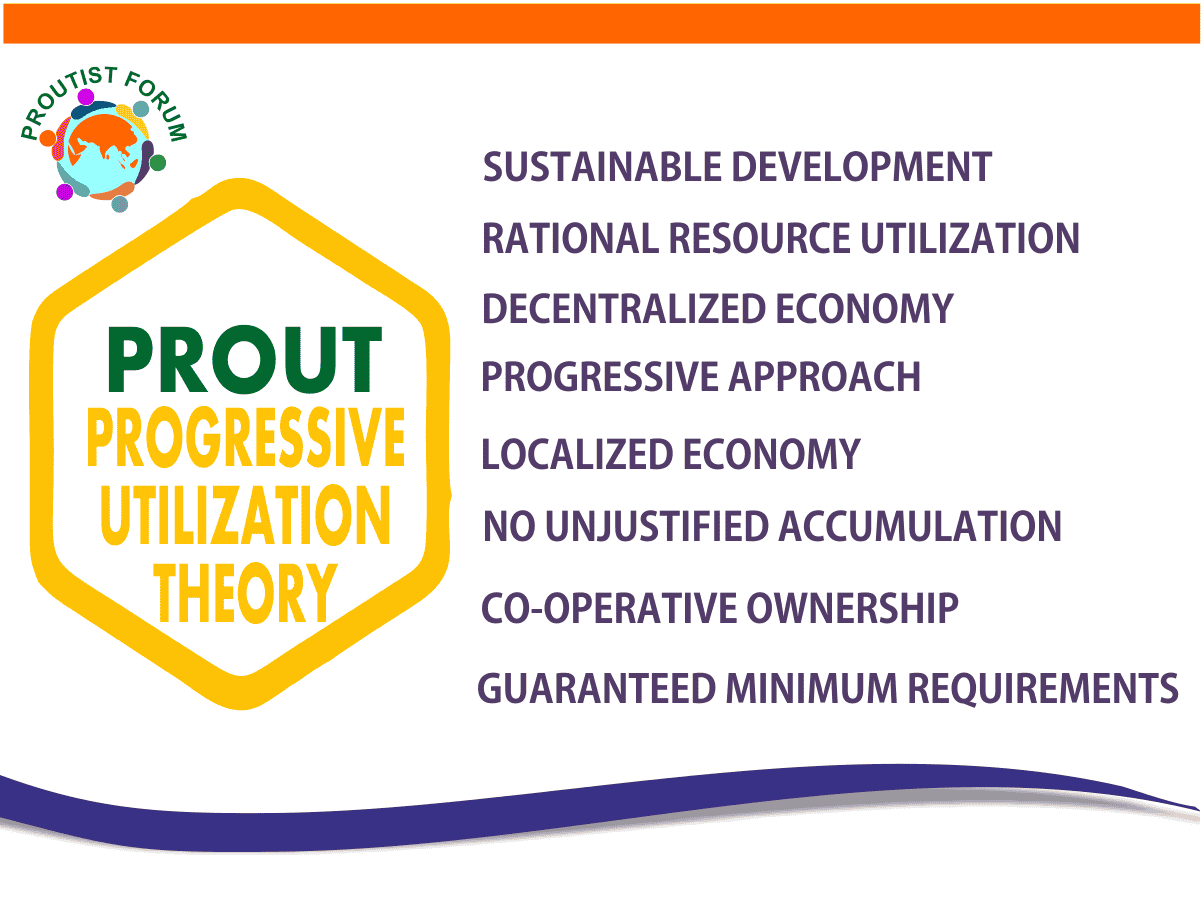Progressive Utilization Theory (PROUT) is a socio-economic and political theory developed by Indian philosopher and spiritual leader Shrii Prabhat Ranjan Sarkar in 1959. It presents an alternative to both capitalism and communism by emphasizing balanced development, decentralized planning, and ethical leadership, while integrating spiritual and human values into economic and social life.
Key Features of PROUT:
Progressive Utilization:
Resources—physical, mental, and spiritual—should be utilized in a progressive and rational manner for the welfare of all.Economic Democracy:
The control and benefits of economic activity should lie in the hands of local people, not external or centralized powers. Local cooperatives and decentralized planning are encouraged.Basic Needs Guaranteed:
Everyone should have access to food, clothing, shelter, education, and healthcare. The economy should be structured to meet these minimum requirements for all.Balanced Growth:
Industrial and agricultural development should be harmonized, avoiding over-centralization and exploitation of rural or underdeveloped areas.Limitation of Wealth Accumulation:
There should be limits on individual accumulation to prevent exploitation and inequality, ensuring a fair distribution of resources.Three-Tiered Industry System:
PROUT proposes a structure with:Key industries run by the government,
Medium-scale industries run as cooperatives,
Small businesses run by individuals.
Spiritual Humanism:
Society should be guided by universal spiritual values, promoting compassion, justice, and service, rather than materialism or class struggle.
PROUT envisions a society where economic and social systems are designed to promote the collective good, ethical leadership, and spiritual fulfillment—offering a middle path between capitalism’s greed and communism’s rigidity.
